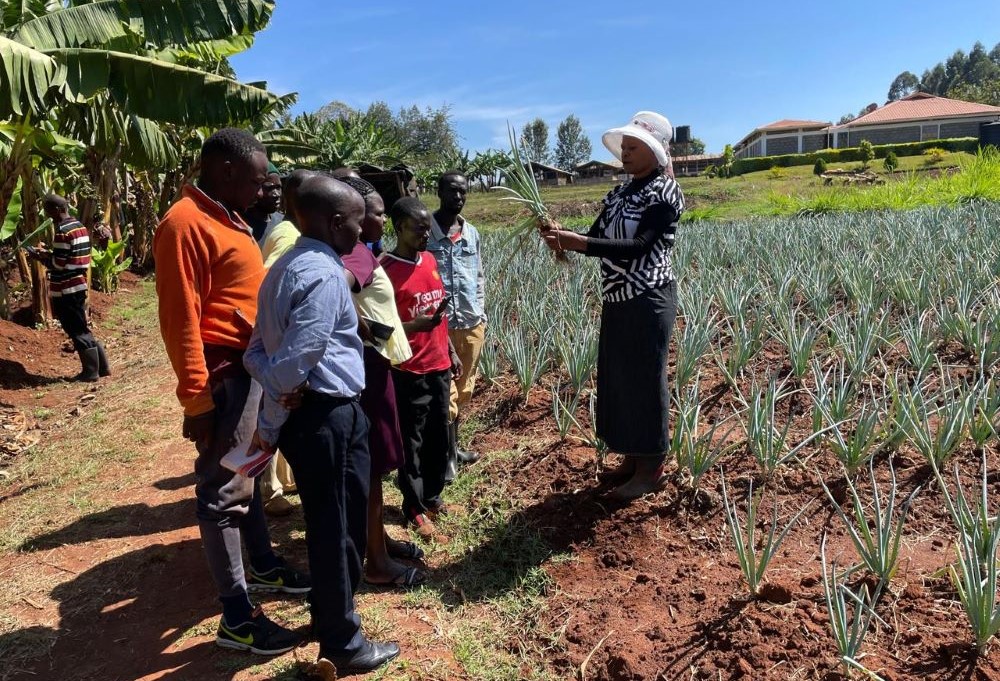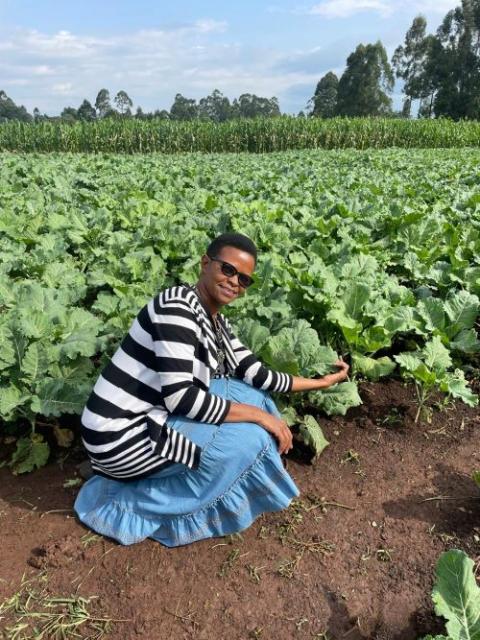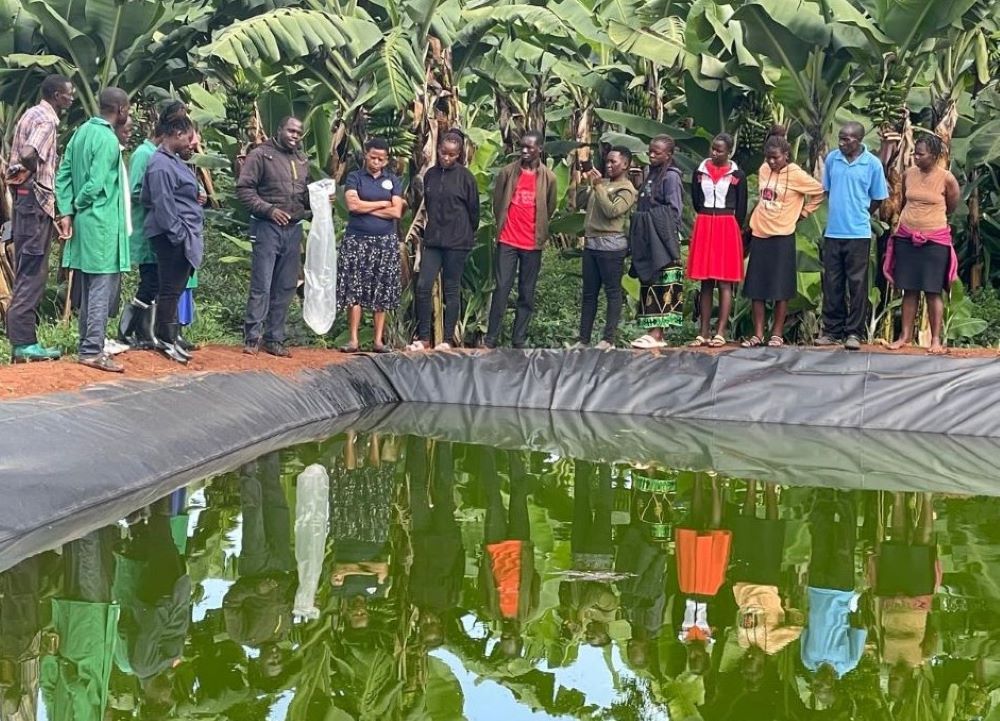
Sr. Flora Nyawira trains a group on leek onion farming. The Sisters of Our Lady of the Good Shepherd run Shalom Farm in Kitale, Kenya. (Mourine Achieng)
Shalom Farm sits on 25 acres of land in Kitale, Kenya, boasting a wide range of crops including bananas, sweet potatoes, spinach, collard greens, traditional vegetables, maize and beans, which are staples for the community. The farm dates to 2008, when the Sisters of Our Lady of the Good Shepherd arrived in Kitale.
The farm was operating at a modest level until 2021, when Sr. Flora Nyawira stepped in. She introduced new crops like bananas and vegetables, revived the fish pond, and expanded into dairy, poultry and beekeeping. Shalom Farm's mixed crops and goods are unique, as most farmers in Matisi Ward, Trans-Nzoia County focus on monocropping, primarily growing maize.
In 2022, Nyawira's proposal to the Conrad N. Hilton Foundation was approved, and she received funds to build a cow shed and purchase five dairy cows. (Conrad N. Hilton Foundation is a major funder of Global Sisters Report.) She planted Napier grass for the cows and later introduced 600 banana trees, using the proceeds from selling the cows' milk. In addition to farming, Nyawira helps women's groups earn more from farm produce. She's held training on yogurt making, baking banana cake and soapmaking.
She told Global Sisters Report that the growth journey started with collard greens, spinach and traditional vegetables, which she sold to small-scale business women in the neighboring villages of Kipsongo, Premium and Shanti who in turn sold the crops at a profit.
Most of these women are their families' breadwinners, and through these small businesses they can support their families and educate their children. The women also buy the bananas, which they either ripen for sale or sell while still suitable for cooking. Nyawira also sells the bananas to grocers in Lodwar and to the congregation's lunch feeding program for poor children from vulnerable families at Hekima Centre.

Sr. Flora Nyawira shows Shalom Farm's thriving collard greens. A maize field is behind the collard greens. (Mourine Achieng)
In 2024, they started beekeeping with 30 beehives and in January added 15 more.
“Insects infested the previous apiary that had been dormant for some time, and so we built another one," Nyawira said. "We sell the honey to our friends and connections from other congregations in Nairobi. But we've realized that other bee farmers in the villages don't have a ready market. We're planning to buy the honey from them, package it and sell it. "
Trans-Nzoia County was a leader in fish farming a few years ago, but the practice has since dwindled. Recently, the county government has been striving to revive it by reaching out to former fish farmers, offering training and donating pond liners. Through this initiative the congregation received its first dam liner through the small-scale business women the congregation manages. They then bought 2,500 tilapia fingerlings, or juvenile fish, for the pond. Currently, the congregation has an additional fish pond with 1,500 fingerlings, with a third pond for catfish on the way.
The sisters' agriculture initiatives extend to Azolla farming that supplements poultry feed and, hopefully, cow feed in the future, cutting the costs in half. Dried Azolla can also be mixed with fish pellets. Nyawira hopes that local farmers can adopt aqua farming to supplement their animal feed, as it's easy to start and maintain.
"Our goal is to make this farm a demonstration farm where farmers from the county can come and train and learn best farming practices and implement them," Nyawira said. "We want to inspire small-scale farmers to maximize their farms' potential through mixed farming. Because if well-managed, they can sustain their families well."

The Trans-Nzoia County fisheries officer trains students from Kitale Technical Polytechnic who are interning at Shalom Farm, and a group of farmers, on fish farming. (Mourine Achieng)
They're slowly fulfilling their dream as the Ministry of Fisheries has trained 30 farmers on fish feed formulation. Also, several farmers' groups have visited Shalom Farm to learn its farming practices and gain insights into organic farming. Six agriculture students from the Kitale National Polytechnic are currently interning on the farm. During semester sessions, agriculture students from the institute also visit the farm for practical lessons.
Because of their collaboration with the Ministry of Agriculture, Shalom Farm will host this year's Matisi Ward Agricultural Field Day, which involves several stakeholders. Nyawira believes that bringing different groups together helps farmers network, learn what other farmers are doing in the region, and provide a market for their various products.
The congregation is looking forward to introducing an agricultural program. They already have a running Technical and Vocational Education and Training accredited college and are well-equipped for both theory and practical lessons. Ultimately, they hope the farm will blossom to generate income for the congregation.
Advertisement






